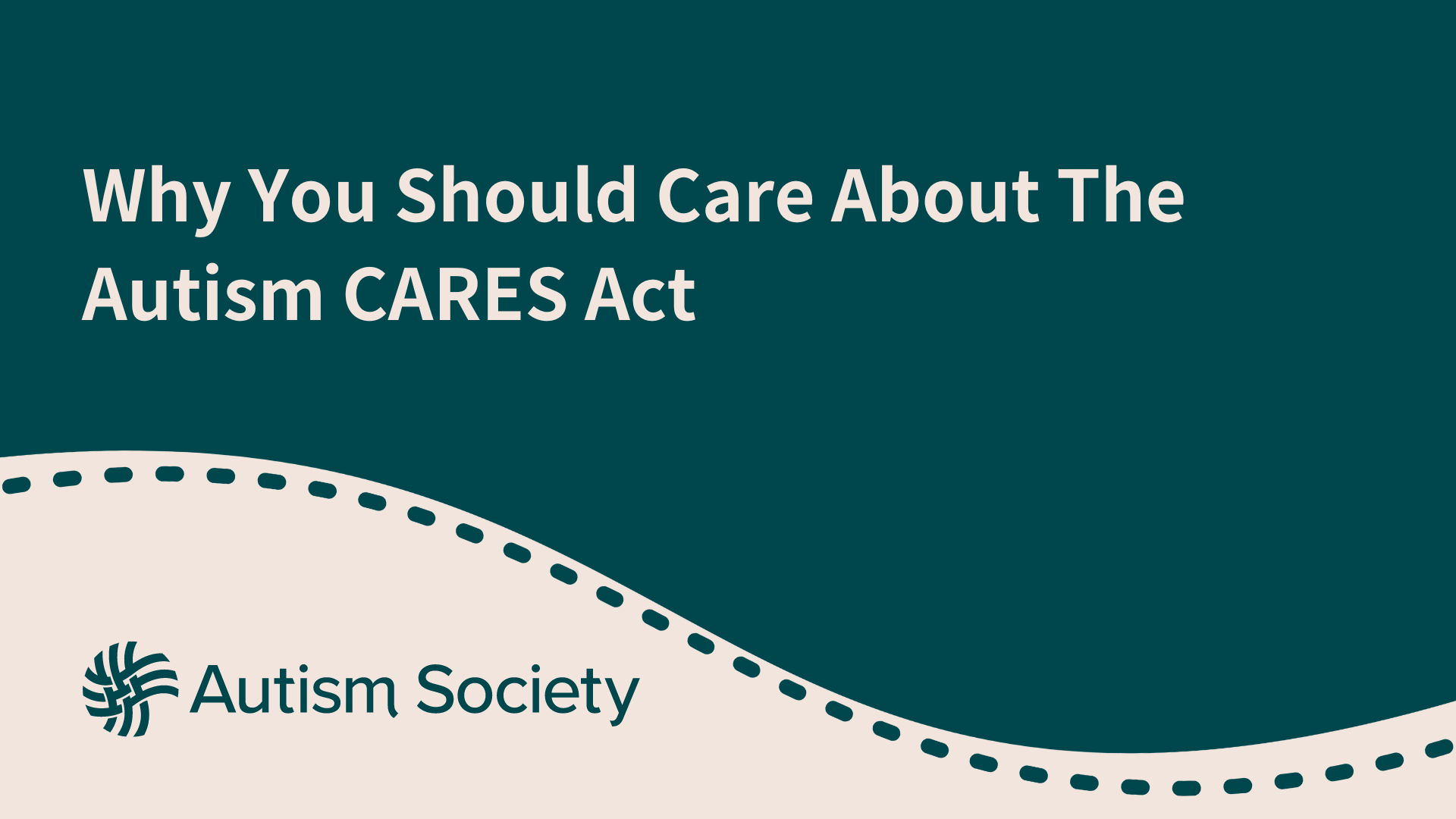
Updates and News

Opinion Piece by Christopher Banks
Rockville, MD, April 23, 2024 – The Autism Collaboration, Accountability, Research, Education, and Support (Autism CARES) Act is a pivotal law for individuals with Autism and their families to live fully. As discussions around this reauthorization gain momentum, it is crucial to understand the immense impact this law has on the daily lives of the Autism community, and why its continuation is imperative.
Early Intervention and Training
It is estimated that 1 in 36 children have been diagnosed with Autism in the U.S., and 5.4 million adults are Autistic. For these individuals and families, the Autism CARES Act is more than just a law; it is fundamental to improving the lives of people with Autism and their families. The Autism CARES Act provides critical funding for many things, including research into evidence-based interventions, education programs for pediatricians and other health professionals, and surveillance and early identification programs that directly improve the quality of life for individuals with Autism.
One significant example of the Act’s success is that the Leadership Education in Neurodevelopmental and Other Related Disabilities (LEND) Program and Developmental-Behavioral Pediatrics (DBP) Program, trained 22,000 interdisciplinary health professionals in Autism screening and identification benchmarks to improve care. These programs collectively provided diagnostic services to confirm or rule out Autism or developmental disabilities to over 115,000 children. Over 3,300 continuing education events were provided on early screening, diagnosis, and services that reached over 270,000 pediatricians and other health professionals.
“The LEND program includes people with lived experience, like me,” said Tia Nelis a person with intellectual disabilities from Illinois. “By including self-advocates, doctors, occupational and physical therapists, and other health professionals, have the opportunity to hear directly from us on how we experience the health care system. It also helped me become a more confident and effective advocate for others.”
With funding from the Autism CARES Act, the Centers for Disease Control and Prevention (CDC) promotes its program, “Learn the Signs, Act Early” to enable countless family members and health professionals to identify Autism earlier; the benefits of early intervention cannot be overstated, as they greatly improve long-term outcomes related to quality of life. Toddlers and children who are diagnosed with Autism grow into teens, and adults with Autism — our supports and services must learn, grow, and continue with each new life stage.
One of the law’s core strengths is its commitment to bridging gaps in care and enhancing our understanding of Autism across the lifespan. This holistic approach is crucial, as the challenges faced by individuals with Autism and their families evolve throughout their lifespan.
Fostering Research and Innovation
The Autism CARES Act has been instrumental in fostering research and innovation in the field of Autism and other neurodevelopmental disabilities. This research includes investigations into the underlying biology, diagnosis, early and ongoing detection, prevention, and interventions of Autism across the lifespan. Securing funding for cutting-edge studies within the National Institutes of Health, aids in uncovering the complexities of Autism, and paves the way for developing effective interventions and supports. This research is vital for improving outcomes and enhancing the quality of life for Autistic individuals, so that they may live, work, and engage in their chosen communities.
“Sometimes I do feel underestimated,” shared Megan Christian, a person with Autism who attended an Autism Society event last year. “I want to learn to drive, I want to learn how to live independently, I want to get married and have children… I want to show people that people with Autism are people first.”
The Autism CARES Act helps make these goals possible for Megan and so many others who wish to have equitable opportunities for inclusion and happiness.
Coordination of Federal Activities
The Act also ensures the continued work of the Interagency Autism Coordinating Committee (IACC). IACC coordinates all federal efforts and provides advice to the Secretary of Health and Human Services. The IACC develops and annually updates a strategic plan for Autism research. Through its inclusion of both federal and public members from across the Autism community, the IACC helps to ensure that a wide range of ideas and perspectives are represented and discussed in a public forum.
The Call for Reauthorization
While the Autism CARES Act embodies a comprehensive approach to supporting individuals with Autism and their families, improvements should be made. The Autism Society provided recommendations to Congress that include:
The Autism Society recently hosted listening sessions to better respond to the needs of the Autism community, including those who have more significant support needs. While the Autism Cares Act focuses primarily on research and innovation, organizations such as the Autism Society will remain committed to its vision of creating a world where everyone in the Autism community is connected to the support they need, when they need it.
Most importantly, reauthorizing the Autism CARES Act is crucial for continuing the progress made in research, education, and training. The reauthorization is not just a policy decision; it demonstrates our collective commitment to meet the diverse needs of the Autism community, with the desire to live fully. We call upon Congress to pass the Autism Cares Act! Take action using our Action Alert to urge your Members of Congress to support.
Share: